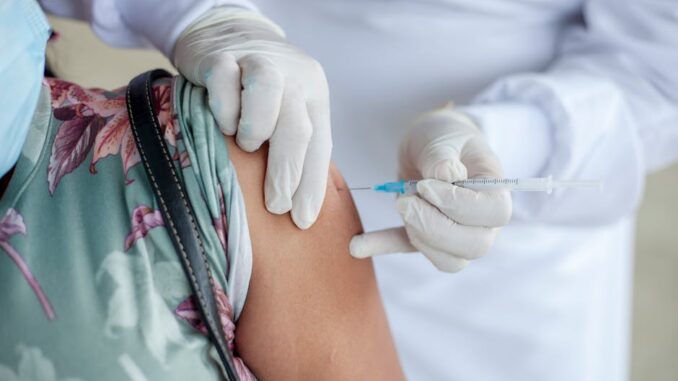
Summary
New research suggests the shingles vaccine may significantly reduce the risk of cardiovascular events for up to eight years. The protective effect appears stronger in men, individuals under 60, and those with less healthy lifestyles. This discovery highlights the potential for broader health benefits from existing vaccines.
Secure patient data with ease. See how TrueNAS offers self-healing data protection.
** Main Story**
A groundbreaking study reveals a surprising link between the shingles vaccine and a reduced risk of cardiovascular disease. Published in the European Heart Journal, the research analyzed data from over one million individuals aged 50 and above, demonstrating a 23% lower risk of cardiovascular events like stroke, heart failure, and coronary heart disease among those vaccinated against shingles. This protective effect persisted for up to eight years post-vaccination, offering a significant advancement in geriatric care and overall public health.
Shingles and Heart Health: Unraveling the Connection
Shingles, caused by the varicella-zoster virus (the same virus responsible for chickenpox), typically manifests as a painful rash. While primarily considered an infectious disease, emerging research suggests a connection between shingles and chronic conditions like cardiovascular disease. This new study reinforces this link, indicating the shingles vaccine may offer protection beyond just the virus itself.
The study, led by Professor Dong Keon Yon of Kyung Hee University College of Medicine in Seoul, South Korea, investigated the association between the live zoster vaccine (Zostavax) and cardiovascular health. This vaccine utilizes a weakened form of the varicella-zoster virus to stimulate immunity.
Study Findings and Implications
The research revealed a substantial decrease in cardiovascular risks among vaccinated individuals. The 23% overall reduction encompassed:
- A 26% lower risk of major cardiovascular events, including stroke, heart attack, and death from heart disease.
- A 26% reduced risk of heart failure.
- A 22% lower risk of coronary heart disease.
These findings suggest the vaccine’s protective effect stems from its ability to prevent shingles infections, which can contribute to blood vessel damage, inflammation, and clot formation – all factors that increase the risk of cardiovascular problems. By preventing the infection, the vaccine potentially mitigates these risks, leading to improved heart health.
Further Research and Current Recommendations
While the study focused on the live zoster vaccine (Zostavax), researchers acknowledge the need for further investigation into the newer recombinant vaccine, Shingrix, which is more commonly used in some countries, including the United States. Shingrix boasts higher efficacy in preventing shingles and may offer similar or even greater cardiovascular benefits. Preliminary data supports this possibility, underscoring the importance of continued research in this area.
It is essential to note that correlation does not equal causation. While the study demonstrates a strong association between shingles vaccination and reduced cardiovascular risk, further research is necessary to definitively establish a cause-and-effect relationship. However, these findings offer compelling evidence for the potential of the shingles vaccine to provide significant heart health benefits. As of May 23, 2025, these findings suggest considering vaccination not only for protection against shingles but also for potential cardiovascular benefits, particularly for individuals at higher risk.
Extending the Scope: Dementia and Beyond
Remarkably, this isn’t the only recent study to highlight additional benefits of the shingles vaccine. Research published in JAMA in April 2025 linked shingles vaccination to a lower risk of dementia. These findings, alongside the cardiovascular benefits, suggest a broader impact of the shingles vaccine on overall health, particularly for older adults. Experts believe the vaccine’s ability to reduce inflammation might be the key factor contributing to these wider-ranging protective effects.
The implications of these studies are substantial, suggesting we may need to rethink the connection between infections and chronic diseases. Vaccines, initially designed to target specific infections, may possess broader immunological effects that extend to other health conditions. Further research is crucial to fully understand these effects and explore the potential for leveraging existing vaccines to address multiple health concerns.


So, are you saying the shingles vaccine is like a multi-vitamin for your heart AND brain? Guess I’ll be rolling up my sleeve and asking for the “works” at my next check-up!